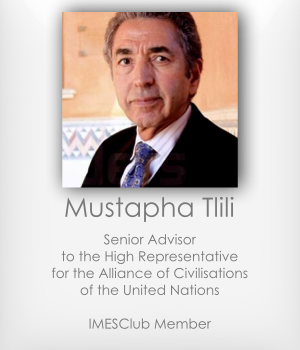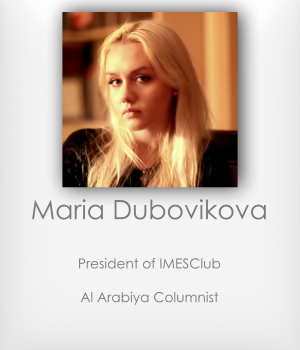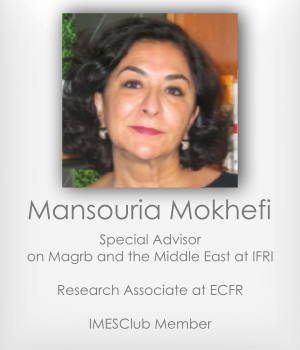 Response to the report by Monica Marks “Tunisian Ennahda: Rethinking Islamism in the Context of ISIS and the Egyptian Coup”
Response to the report by Monica Marks “Tunisian Ennahda: Rethinking Islamism in the Context of ISIS and the Egyptian Coup”
The report by Monica Marks published in August by the Brookings Institution and devoted to the Islamist Ennahda party in Tunisia is without any doubt of great interest, thanks in part to the sources on which it draws – the author’s numerous interviews with Ennahda activists and leaders – and in part to its fascinating concept. The latter, in a nutshell, argues that the evolution of Ennahda in the post-revolutionary period is a unique case of reinterpreting Islamism
It is hard to disagree with the author’s overall conclusion that the strengthening of ISIS and the military coup in Egypt in July 2013 forced Ennahda to seek a compromise, or adopt a moderate political strategy.
Ennahda lost its leading position in the country after the 2014 parliamentary and presidential elections. However, in spite of this, against the background of growing threats to national security on the part of terrorist groups, the situation in Libya and the continuing protests in the southern regions throughout 2015, it continued to preach “republicanism” and display readiness to cooperate with the authorities in order to strengthen state institutions and keep the social peace. It was not by chance that Rached Ghannouchi, the “intellectual leader” of the Ennahda Movement, travelled to the southern cities to pacify protesters in June 2015, negotiated with the Libyans who had kidnapped Tunisian citizens, etc.
The respect Ennahda earned among the broad circles eventually enabled the party not only to preserve its positions inside the country, but also to be active in international affairs.
The question is, however, whether Ennahda’s new strategy is a chance positive result of the generally negative regional context, as Monica Marks contends. Or is it the case that the party’s political practice has been greatly influenced by internal factors? Below I propose to present three arguments in favour of the second answer. These arguments do not mean that the external factor should be discounted, but they add a new dimension to the picture and explain why Ennahda’s experience so far is unique in the region.
Chicken, Egg and Forced Modesty
The first argument has to do with the genetic ambivalence of Ennahda and the specificities of its historical development. Considering the party’s history, Monica Marks mentions the fact that many of the people who founded the Islamist movement in the country came from disfavoured regions and that, initially, the party was recruited from amongst conservative young people who had not found a niche for themselves in the secularist authoritarianism built by Habib Bourguiba and Z.A. Ben Ali.
That is indeed so. At the country level, Islamist movements in Tunisia were heirs to the conservative forces which saw the country identifying itself with the Arab and Islamic world even before independence. In the 1940s and 1950s, these forces were represented by the “Youssefists” led by Habib Bourguiba’s eternal rival Salah ben Youssef, who was killed by unidentified assailants in Frankfurt am Main in 1961. It is no accident that after the revolution in 2011 the Ennahda leadership treated the relatives of the long-deceased politician with particular reverence.
Socially, the very beginning, the Youssefists and Ennahda followers from represented the Tunisia that Habib Bourguiba dreamed leaving behind – ancient, conservative and religious. Whether Islamism was an expression of the protest of the traditionalist social strata or, conversely, these strata provided the social base for an essentially religious movement is a chicken-and-egg question that offers an insight into a dimension of Tunisian political reality that is unusual in the West and in Russia.
Michaël Ayari in his time noted that the inner regions were over-represented within Ennahda, and the 2011 and 2014 elections confirmed that the party’s main electorate, like many years before, lives in these disfavoured zones and in the poor outskirts of megalopolises.
At the same time, under Habib Bourguiba – and later under Ben Ali – the country’s political elite was recruited mainly from amongst the much more modern citizens of the coastal areas (Sahel) and the capital that competed with each other.
As a result Ennahda’s victory in 2011 can be interpreted – through the prism of regionalism – as a victory of the internal (more traditional) regions over Sahel and the capital. If we take this view of the political process, we have to admit that Ennahda was essentially a pragmatic force that was not seeking the Islamization of the country or to change its morals, but rather access to power and resources, a task it successfully accomplished.
Another feature of the party’s historical development was that it existed for a long time in the European environment and under one and the same party elite (unlike the Muslim Brotherhood in Egypt). The people who returned to their home country in 2011 had extensive and diverse experience of political life. Basically, the revolution was their last chance, with its judicious use dictating political flexibility.
In the early months after returning to their native country they of course felt euphoria which was clearly visible in the party’s activities, and the laws proposed by Ennahda following their electoral victory in 2011 were initially quite Islamist in spirit. However, each time the sharp public reaction forced the party to retreat. It is a tell-tale sign that the famous recording of Rached Ghannouchi’s conversation with the Salafites quoted by Monica Marks hit the social networks precisely at the moment when the party was, once again, forced to retract its initiatives under the pressure of secularists, much to the dismay of the Salafites.
It was well-known, and even obvious, that the social elites mistrusted Ennahda from the very start, as was the fact that the party was unable to cope with all the problems that had beset the country. Finally, the fact that both Troika governments were formed on party (rather than professional) lines also had a negative impact. All these factors, coupled with the dramatically deteriorating social security situation, caused the party to take a pragmatic approach: it was aware that its position was vulnerable and was learning to be modest and seek dialogue.
Thus, while the combination of the social-geographic and ideological representation in Ennahda made its political goals somewhat obscure, its prolonged experience of emigration and mistrust on the part of considerable social groups forced the party to be realistic.
A Cunning Force
The second argument in favour of the view that Ennahda’s pragmatism was motivated by internal reasons lies in the realm of ideology and is associated with the Islamists’ “dual discourse”.
Ever since the party returned to the Tunisian political scene its opponents have pointed out Ennahda’s rhetoric aimed at the official media, Western observers and Tunisian liberals, was almost the opposite of what the party’s leaders were saying in mosques when addressing the electorate from poor neighbourhoods. Much of the information Monica Marks got from her respondents fits the first type of the Islamist discourse, which stresses that Ennahda is a kind of Tunisian answer to Turkey’s Justice and Development Party, a political party that seeks to combine democracy with Arab Muslim identity and promotes religious values, among which the Ennahda Movement singled out freedom. However, Ennahda’s second discourse was similar to that of the Salafites: its leaders could be heard arguing that for Islam the individual does not exist, that Islam thinks in the categories of Umma, that Jihad is the duty of every Muslim, etc. [1]
Ennahda’s dual discourse was reflected in its political practice. Thus, while speaking out in favour of democracy, taking part in elections, etc., the party’s leaders supported the creation of the Ansar al-Sharia movement in Tunisia, which was later declared to be terrorist (Ennahda representatives attended its founding congress in the spring of 2011), and the Leagues for the Protection of the Revolution, which played the role of a party militia. The government covered for these organizations under Minister of the Interior Ali Laarayedh, whose actions on several occasions claimed human lives.
Marks notes that in making their case to Western observers, party representatives tended to describe thr Salafites as wayward and fuzzy-thinking children of the Islamist movement, which fails to explain the presence of radicals in the top echelons of Ennahda (Sadok Shuru, Valid Bannani and others). However, there may be different explanations for the Salafism of the leaders and the electorate.
As regards the party’s leadership, apparently it always had several ideological strands, the differences between which deepened over time. On the one hand, it has nationally oriented Islamists such as Abdelfattah Mourou, the party’s vice president and co-founder together with Rached Ghannouchi. A prominent lawyer, he is a paragon of a tunisois, an inhabitant of the capital: a debonair intellectual and a hospitable host. Islamism is for him what the traditional Russian shirt was for Russian Slavophiles in the 19th century. On the other hand, the party elite includes some people who identify themselves with the world Islamist movement and consider Tunisia only as the starting point of their activities. These sentiments were prevalent among Ennahda followers who had spent long periods of time in emigration, as well as among young Ennahda members.
The most interesting thing about the party is its ability to stay united in spite of conflicting ideological currents within it. There are three reasons for this.
First, Ennahda has the ability to consolidate when faced with a threat from secular forces. Not surprisingly, internal party differences came to the surface when the party was in power and its members felt relatively secure. Second, veteran Ennahda members have strong personal bonds and thirty years of experience in fighting political battles together. Third, the personality of Rached Ghannouchi and his unchallengeable authority as a political and spiritual leader play a unifying role.
As for the social base of Ennahda, its fragmentary nature reflects the Party’s wish to attract the broadest possible electorate. While some sincerely adhered to Islamist views, others leaned towards conservatism, which offered an alternative of sorts to Westernized liberalism, and others again backed the Ennahda simply because they had suffered under Ben Ali, and still others saw Ennahda as a herald of democracy.
Characteristically, while in Egypt Islamists quickly split up into several political movements (the Freedom and Justice Party of the Muslim Brotherhood, Salafi Al-Nur, etc.), this did not happen in Tunisia – where the Salafite parties mentioned by Marks have always been on the sidelines and generally little known.
The electoral victory in 2011 that brought Ennahda into power changed the party. On the one hand, its membership increased dramatically, partly diluting its ideology. On the other hand, the need to govern and engage with the secular social strata led to a cooling of relations between Ennahda and the Salafites. The latter saw Ennahda as traitors and a “new Democratic Constitutional Assembly” (the ruling party in the times of Ben Ali) [2].
It took a sharp polarization of society in the spring of 2013 (see below) to heal the rift between the two Islamist forces, with Ansar al-Sharia flags often visible at Ennahda rallies. However, the Salafie organization was banned several months later under pressure from the growing opposition.
At the end of the day, it is safe to say that in the socio-ideological sense Ennahda has always been heterogeneous, which enabled it to demonstrate an extraordinary polymorphism of political discourse and flexibility.
The Force of Weakness
Finally, the third argument is connected not with the features of the Islamic party but with the features of Tunisia’s political culture. In the spring and summer of 2013, the situation in the country deteriorated and society was becoming increasingly polarized, with talk of an imminent civil war: there were several different ways in which both Islamists and anti-Islamists could have acted.
Thus, in February 2013, when close to a million Tunisians (almost 10 per cent of the population) took to the streets with anti-Islamist slogans after the murder of Chokri Belaid, the opposition could have pulled off a counter-coup (like they did in Egypt later) by proving its legitimacy: the transitional period in the country was supposed to have ended back in the autumn of 2012. They would have been supported by significant sections of society and apparently by the security structures which were at daggers drawn with Ennahda.
At the same time, the Egyptian coup in July, which in Marks’s opinion forced Ennahda to seek a compromise, could have prompted it to act in the opposite way. The threat of power being usurped by the Islamists in the summer of 2013 was very real, and there were supporters of a blitzkrieg within the party [3]. Experts were examining the scenario of introducing martial law and the rise of religious authoritarianism disguised as counter-terrorism.
However, neither of these two things happened. Instead, a National Dialogue was initiated under the aegis of civil society organizations, the only example of a totally successful national dialogue in the Arab world during that period. This course of events was predetermined, in our view, by three factors.
First, the uncertainty of the political environment, with no political force in Tunisia having a clear advantage, and the army and the security forces depoliticized in spite of all the revolutionary changes. As a result neither Nidaa Tounes nor Ennahda were ready to take decisive action.
Second, the high level of development of civil society, whose institutions (above all the trade unions) commanded greater popular trust than the parties. This enabled them to act as moderators and guarantors of the National Dialogue.
Third, the established culture of political dialogue in the country, society’s aversion to violence and the growing fear of a “bloodbath.”
All these distinctive characteristics of political culture stem from the way it has been formed: it was mainly formed by the people of Sahel, the region noted from the early modern times for its high level of urban culture. It generated a commitment to political dialogue, the self-consciousness of civil society and developed social institutions. The trade unions, the Human Rights League, the lawyers’ guild, and similar organizations are relatively independent of the authorities and command great popular trust.
In addition, the commitment of the army to stay out of politics made a deep imprint on the country’s political culture. Keeping the military out of power was a principle adhered to by Bourguiba, and by Ben Ali after him. The result was a form of popular respect of the republican-oriented army which did not interfere in political life.
All these circumstances did not just lay down the rules of the game in politics, but forced Ennahda to act in accordance with them. Ultimately, by opting for compromise, the party demonstrated its national republican orientation.
Thus, the ambivalence of Ennahda’s political goals, the social and ideological heterogeneity of the Islamist party and the characteristics of the country’s political culture were the main factors behind the pragmatism and adherence to compromise. That is why this experience is hard to spread to other countries in the region, where the Islamist forces differ from those of Tunisia in terms of origin and historical experience, and where political cultures differ from those of Tunisia.
At the same time, if we were to admit that these were the decisive factors, we would have to subscribe to Marks’s conclusion regarding the evolution of the party. So far, we can talk merely about a change of its political tactics and the use of the rich experience of political manoeuvring, which has always been a feature of Tunisian Islamists.
INITIALLY FOR RIAC.
Published following the authors permission.
1. Author’s field studies in 2011–2015.
2. Author’s field studies in 2012–2013.
3. Author’s field studies in January, February and June 2013. Part of the results are available at: http://globalaffairs.ru/global-processes/Nemnogo-krovi-v-mutnoi-vode-15979(in Russian) and: http://vid-1.rian.ru/ig/valdai/Islam_in_politics_eng.pdf.




 Response to the report by Monica Marks “Tunisian Ennahda: Rethinking Islamism in the Context of ISIS and the Egyptian Coup”
Response to the report by Monica Marks “Tunisian Ennahda: Rethinking Islamism in the Context of ISIS and the Egyptian Coup” Mustapha Tlili, novelist, Director of the UN information Center for 30 years and columnist for the New York Times carries an optimistic and confident outlook on Tunisia and its ability “to meet the challenges of democracy and modernity”.
Mustapha Tlili, novelist, Director of the UN information Center for 30 years and columnist for the New York Times carries an optimistic and confident outlook on Tunisia and its ability “to meet the challenges of democracy and modernity”. More and more terrorist groups swear allegiance to the Islamic State of Iraq and Syria (ISIS) and the international attempts to bring down ISIS seem in vain.
More and more terrorist groups swear allegiance to the Islamic State of Iraq and Syria (ISIS) and the international attempts to bring down ISIS seem in vain.
 Mansouria Mokhefi on the terrorist attack in Tunisia for AFP. Commentary is available in French.
Mansouria Mokhefi on the terrorist attack in Tunisia for AFP. Commentary is available in French. Syria
Syria Terrorist attack in Tunisia on March 18, which took 22 lives of civilians, in my opinion, is no accident. In this day and this hour (13:45) Minister of Justice of Tunisia was presenting a new draft law on combating terrorism and money laundering in the Parliament. The presentation ended with the sounds of gunfire coming from the neighbouring Parliament building. This was not the first act of terrorism in the country since the beginning of this year. yesterday it just has painfully hit the feelings of Europeans and caused a loud reaction in the world media.
Terrorist attack in Tunisia on March 18, which took 22 lives of civilians, in my opinion, is no accident. In this day and this hour (13:45) Minister of Justice of Tunisia was presenting a new draft law on combating terrorism and money laundering in the Parliament. The presentation ended with the sounds of gunfire coming from the neighbouring Parliament building. This was not the first act of terrorism in the country since the beginning of this year. yesterday it just has painfully hit the feelings of Europeans and caused a loud reaction in the world media.






